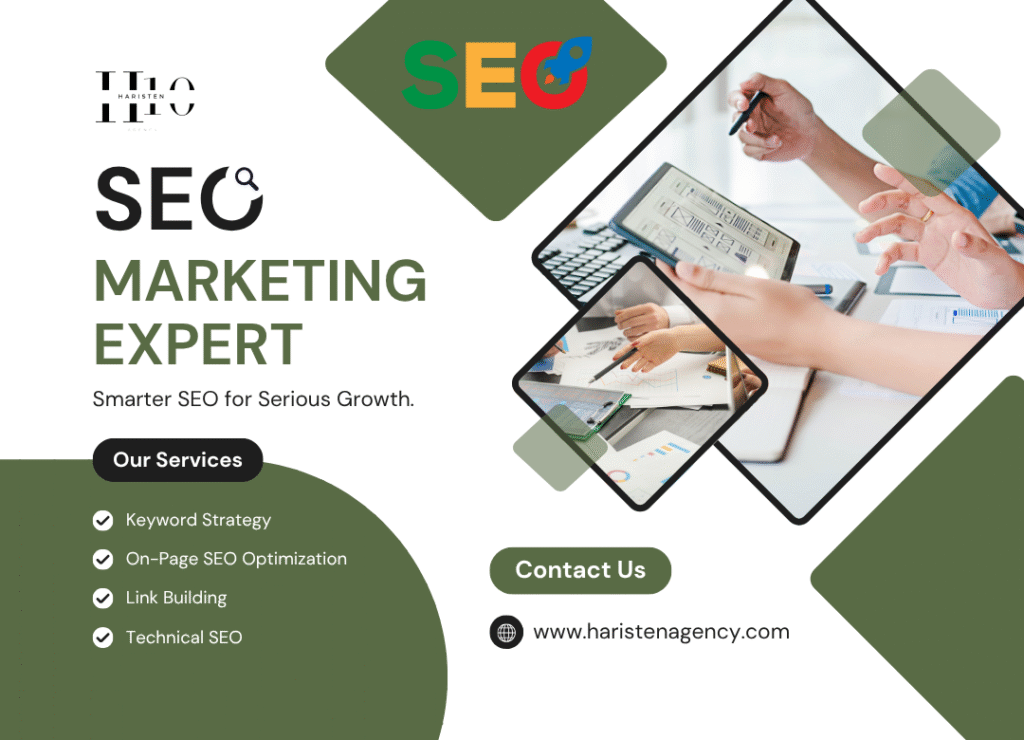What is Digital Marketing?
In today’s world, almost everything is connected to the internet – from shopping and education to entertainment and communication. Businesses have also shifted their attention online because that’s where people spend most of their time. This shift has given rise to digital marketing – a modern way of promoting products and services using the internet and electronic devices. Online promotion is not just about putting ads on Facebook or sending promotional emails. It’s a complete strategy that uses various internet platforms to connect with the right audience, build relationships, and encourage them to take action – whether that’s making a purchase, signing up for a newsletter, or downloading an app. Digital Marketing is the process of promoting your products or services through online channels such as: Google Search (SEO, PPC) Social Media (Instagram, Facebook, YouTube Email Marketing Websites and landing pages It helps you reach the right audience, at the right time, on the right platform — with measurable results. How AI Is Transforming Online Promotion: Trends You Can’t Ignore Artificial Intelligence (AI) is no longer a “future technology” – it’s here, and it’s changing how businesses connect with customers. In digital marketing, AI is becoming a powerful tool that makes campaigns smarter, faster, and more effective. If you want your business to stay ahead, you can’t ignore these trends. Definition of Digital Marketing Digital marketing refers to the use of online channels, technologies, and strategies to promote and sell products or services. It involves creating a strong presence on digital platforms such as search engines, social media, websites, email, and mobile apps. Unlike traditional marketing (like TV, radio, or newspaper ads), digital marketing is interactive, trackable, and often more cost-effective. It allows businesses to target specific groups of people based on their interests, location, age, or online behavior. Digital marketing is the art of promoting products or services through digital channels to reach a targeted audience. Why It Matters In the past, if a business wanted to reach customers, it relied on billboards, print media, or word-of-mouth. Now, in the internet era, people actively look for solutions online. Whether they’re checking reviews before buying a phone or watching a tutorial video, the internet influences almost every buying decision. Key benefits include: Global Reach – A small store in India can sell to customers in the USA through online channels. Cost-Effective – Running internet campaigns can be far cheaper than TV or newspaper ads. Targeted Reach – Ads can be shown only to the most relevant audience. Measurable Results – It’s easy to track clicks, visits, and sales. Customer Engagement – Social platforms allow direct interaction with potential buyers. Do you want me to rewrite the entire 100 What is Online Promotion? In today’s world, almost everything is connected to the internet – from shopping and learning to entertainment and communication. Businesses now focus their efforts where people spend most of their time — online. This shift has given rise to a modern way of promoting products and services using the internet and electronic devices. This approach is not just about placing ads on Facebook or sending promotional emails. It’s a complete strategy that uses various online platforms to connect with the right audience, build trust, and encourage them to take action — such as making a purchase, signing up for a newsletter, or downloading an app. Here are some of the most popular forms of digital marketing: 1. Search Engine Optimization (SEO) Improving your website’s visibility on Google and other search engines so more people can find you when they search. 2. Social Media Marketing (SMM) Using platforms like Instagram, Facebook, and LinkedIn to promote your brand and connect with your audience. 3. Email Marketing Sending personalized messages, offers, and updates directly to your customers’ inboxes. 4. Content Marketing Creating valuable blog posts, videos, infographics, and more to educate and attract your audience. 5. Pay-Per-Click Advertising (PPC) Paid ads (like Google Ads) that appear on search engines or websites, where you only pay when someone clicks. 6. Affiliate Marketing Promoting products through partners or influencers who earn a commission for each sale they drive. 7. Influencer Marketing Collaborating with social media influencers to showcase your brand to their followers. How Does Digital Marketing Work? It works by placing your brand or product in front of people where they already spend their time — online. It involves a strategy that includes targeting the right audience, creating quality content, using the right platforms, and measuring the results to improve future campaigns. Final Thoughts In a world where nearly everything is online, digital marketing is no longer optional — it’s essential. Whether you’re a small business owner, freelancer, or a large company, using digital marketing the right way can help you grow, attract customers, and stay ahead of the competition. Click here


